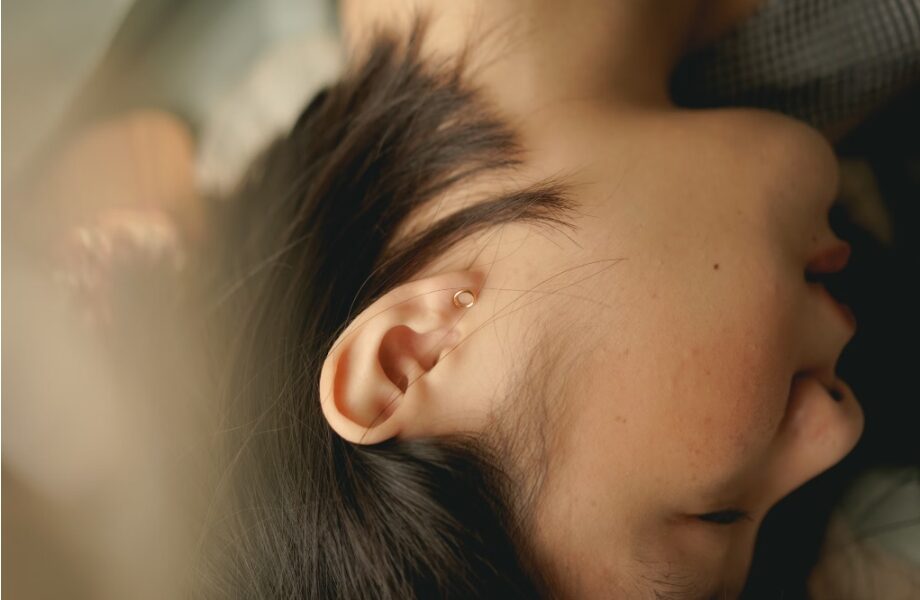How to Properly Clean Your Ears to Avoid Infections

Ears are essential organs that serve crucial functions in our daily lives, from facilitating communication to providing balance. However, when it comes to ear hygiene, many individuals don’t prioritize proper cleaning techniques. Improper cleaning can lead not only to discomfort but can also increase the risk of ear infections. Understanding how to care for your ears effectively can prevent common issues and promote overall ear health.
The Importance of Ear Hygiene
Maintaining ear hygiene is vital for preventing infections and other complications. The ears are self-cleaning, meaning they naturally expel wax and dirt. However, environmental factors, like pollution and excessive moisture, can introduce bacteria. According to a study by the American Academy of Otolaryngology, approximately 30 million people in the U.S. experience ear infections annually. This can lead to pain, swelling, and potential hearing loss. To ensure that your ears remain healthy, it’s essential to develop a regular cleaning routine without overdoing it. Using a damp cloth to clean the outer ear and avoiding the insertion of objects into the ear canal is a simple and effective approach. If you notice any discomfort or symptoms of an ear infection, seeking professional medical advice is crucial to prevent further complications.
Common Mistakes in Ear Cleaning
One of the most prevalent mistakes people make is using cotton swabs to clean their ears. Cotton swabs can push wax and debris deeper into the ear canal, leading to blockages and infections. Instead of cleaning, they may exacerbate existing problems. Moreover, some individuals may attempt to use objects like hairpins or pins to dig into their ears, which poses significant risks, including damage to the ear drum. Therefore, it’s crucial to set aside these harmful practices and adopt safer cleaning methods. A safer alternative is to use ear drops designed to soften the wax, allowing it to naturally exit the ear. If there are concerns about earwax buildup, consulting a healthcare professional for proper removal is always the best approach. Regular check-ups can help ensure your ear health is maintained without resorting to risky self-cleaning methods.
Effective Ear Cleaning Techniques
The most effective way to keep your ears clean involves a simple regimen of external cleaning and occasional deeper cleaning when necessary. You can start by gently cleaning the outer ear with a soft cloth. It’s important to avoid inserting anything into the ear canal while performing this task. For those who produce excess earwax, a visit to an ear care professional is advisable. They can safely remove the wax without the risk associated with DIY methods. Additionally, some people choose to use ear drops specifically designed for wax removal; these are generally safe when used correctly. For more comprehensive information about ear care, you can visit TheHearingHub, a resource offering guidance on ear health and cleaning techniques. They provide expert advice and practical tips to help you maintain optimal ear health and prevent potential issues.
Signs of Ear Infections
Recognizing the signs of an ear infection can help you seek prompt treatment. Common symptoms include pain in the ear, fluid drainage, and a feeling of fullness or pressure. Children might exhibit additional signs such as irritability or difficulty sleeping. If you experience any of these symptoms, do not hesitate to consult a healthcare professional. Early intervention can prevent more severe complications and provide relief much faster.
Prevention of Ear Infections
Prevention is the best way to avoid ear infections. First, maintain a routine of proper ear hygiene as discussed; second, protect your ears from water exposure. Wearing earplugs while swimming or showering can help keep moisture at bay. Managing allergies and colds can also reduce the risk of ear infections, as nasal congestion can lead to fluid accumulation in the ear. Another preventive measure involves avoiding exposure to secondhand smoke. According to the CDC, children exposed to secondhand smoke are 50% more likely to develop ear infections. Therefore, ensuring a smoke-free environment contributes significantly to ear health.
When to Seek Medical Attention
If symptoms of an ear infection persist, it’s crucial to seek medical advice. Particularly if you notice a fever or severe pain, consult a doctor immediately. Medical professionals might need to prescribe antibiotics or recommend other treatments, depending on the severity of your condition. In some cases, persistent infections may require further evaluation to rule out underlying problems.

Maintaining proper ear hygiene is crucial for preventing infections and maintaining overall ear health. By avoiding common mistakes, establishing a routine cleaning regimen, and recognizing the signs of infections, we can safeguard our ears. Finally, remember the importance of a balanced diet and regular health check-ups. Ensuring optimal conditions for your ears will lead to a healthier, more comfortable life.





